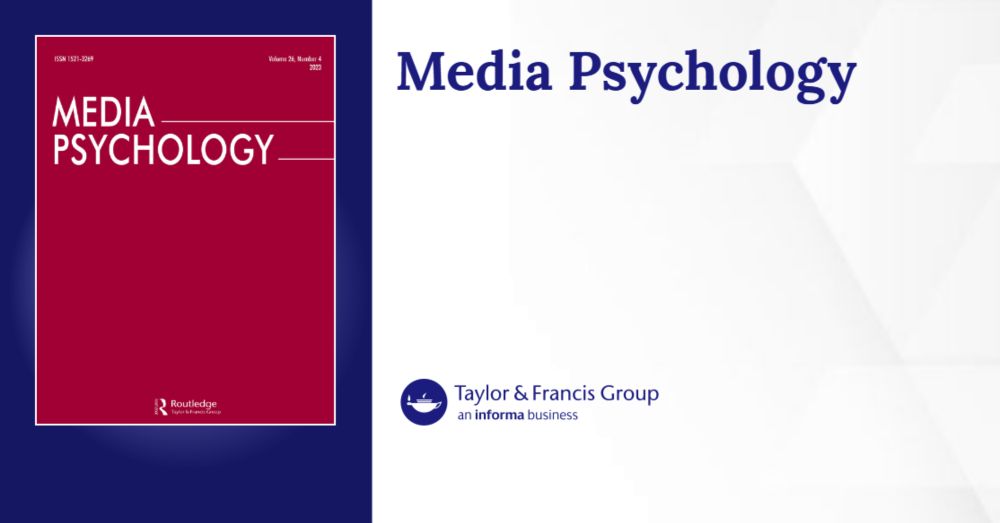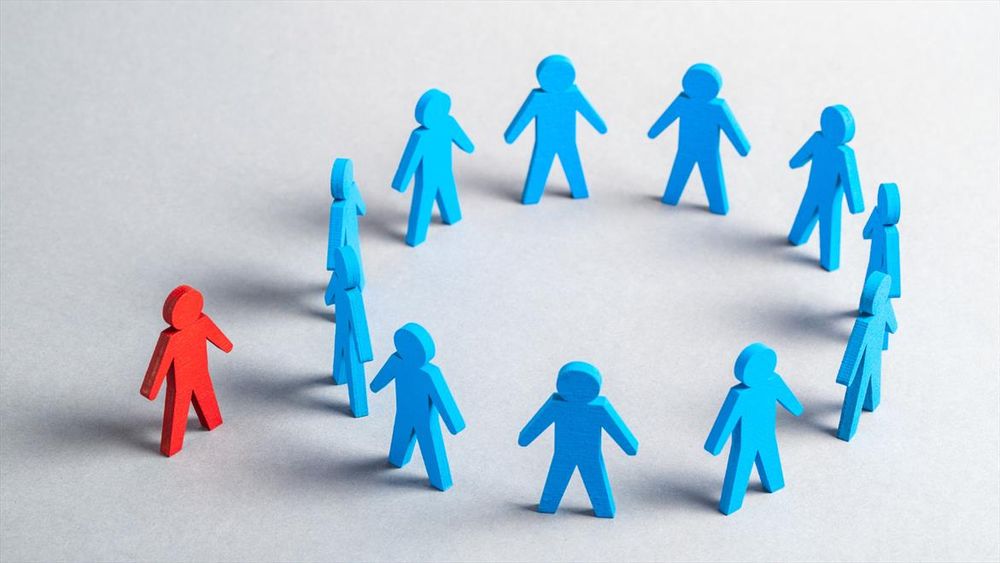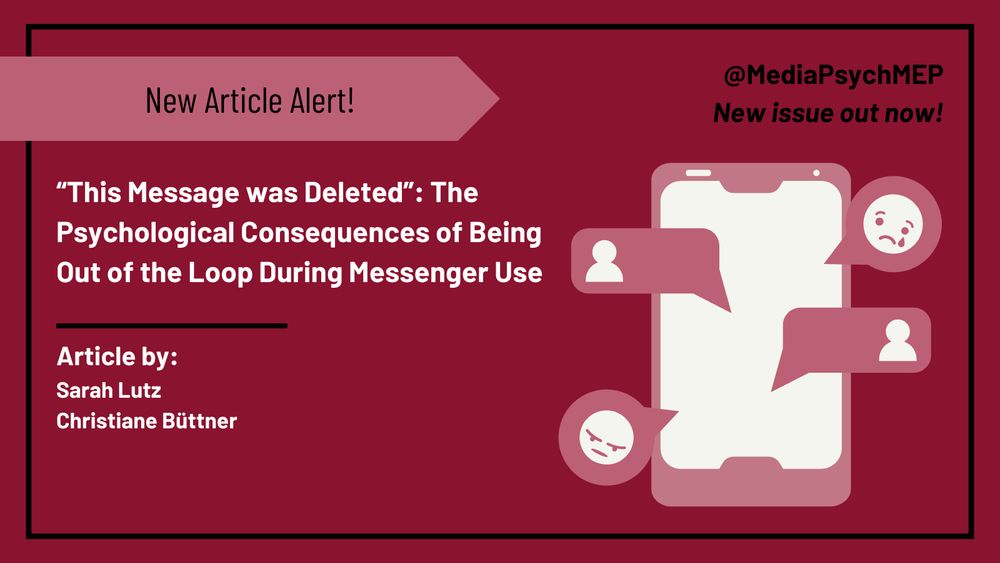Christiane Büttner
@chrbuettner.bsky.social
350 followers
470 following
28 posts
postdoc at Stanford researching social interactions, ostracism, and social media processes
https://christiane-buttner0.webnode.page/
Posts
Media
Videos
Starter Packs
Reposted by Christiane Büttner
Reposted by Christiane Büttner
Reposted by Christiane Büttner
Reposted by Christiane Büttner
Reposted by Christiane Büttner
Sarah Lutz
@sarahlutz.bsky.social
· Jan 29

“This Message was Deleted”: The Psychological Consequences of Being Out of the Loop During Messenger Use
Many messenger services, such as WhatsApp or Snapchat, offer the option of deleting messages after they have been sent, leaving a so-called delete notification in the chat. Especially in group chat...
www.tandfonline.com









